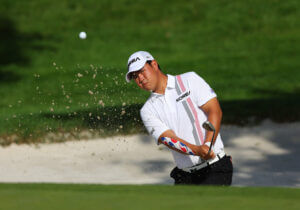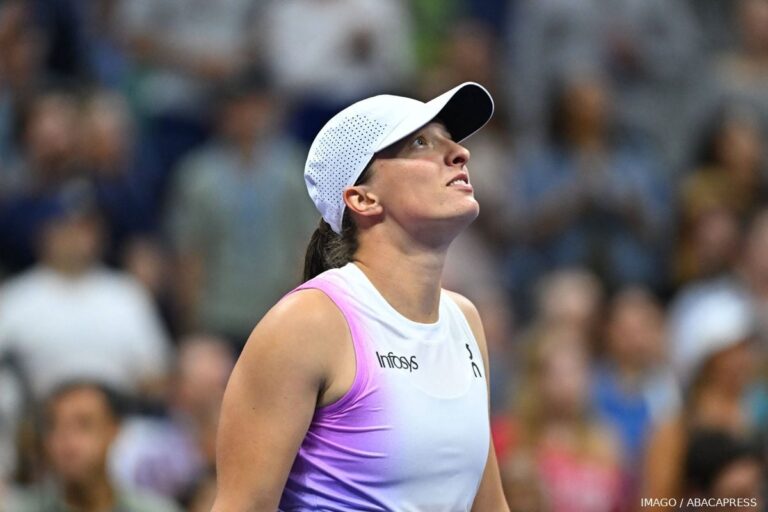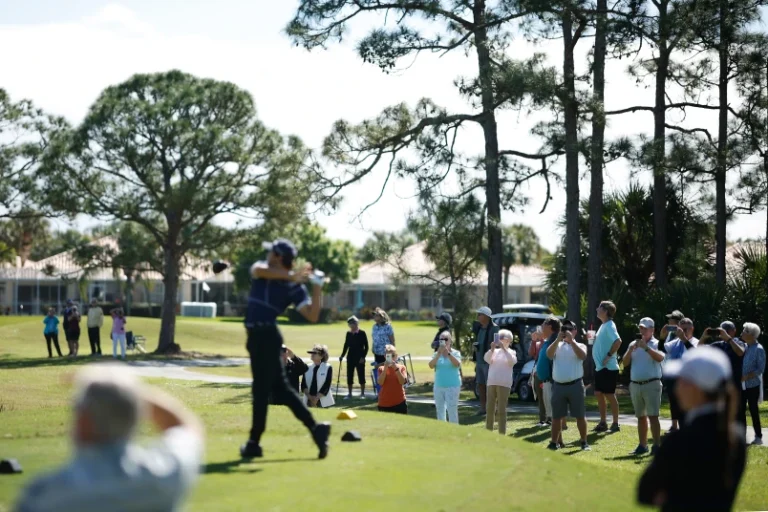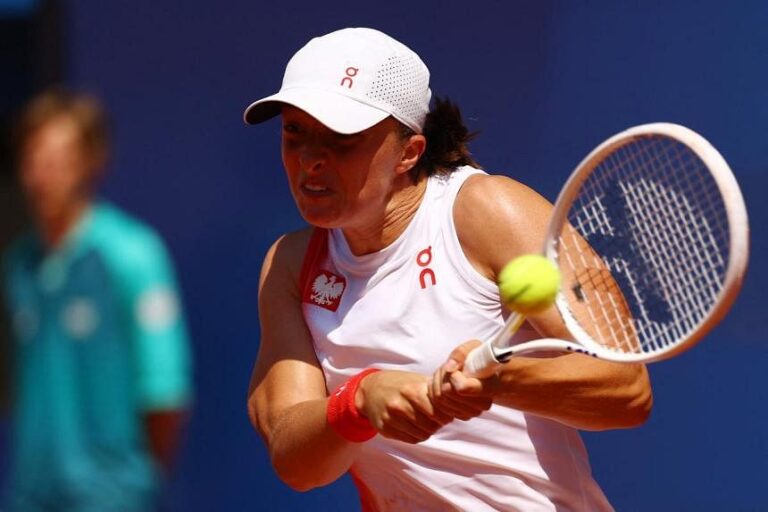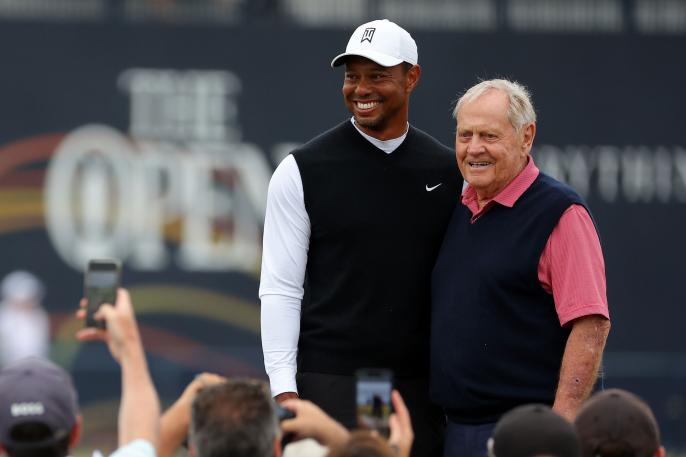TOM KIM: GOLF’S HIGH-STAKES HERO, ON THE BRINK OF OLYMPIC GLORY AND MILITARY SERVICE
TOM KIM: GOLF’S HIGH-STAKES HERO, ON THE BRINK OF OLYMPIC GLORY AND MILITARY SERVICE
The Olympic golf competition resembles a high-stakes velodrome race, where athletes strategize and position themselves for a final burst toward the finish line. As the event progresses, the challenge intensifies, and the pressure mounts. Midway through the tournament, the rain-softened greens of Le National have tested the world’s finest players, but the top contenders remain undeterred. Leading the pack at an impressive -11 are three of the game’s elite: Xander Schauffele, Hideki Matsuyama, and Tommy Fleetwood. In fourth place, just two shots behind, is Jon Rahm. Close on their heels are prominent talents like Joaquin Niemann, Scottie Scheffler, Matt Fitzpatrick, Jason Day, and Rory McIlroy, all eager to make their move.
As the competition heats up, the third round on Saturday is set to test the players’ mettle. In Olympic golf, finishing fourth holds no more significance than coming 60th. With no financial rewards or FedEx Cup points at stake, the focus shifts entirely to securing a podium finish. Aggressive play becomes not just a strategy but a necessity.
“It’s all about mental toughness as the week progresses,” says Fleetwood. “The top three spots are what matter here. Typically, finishing in the top five or ten is considered a success, but not in this format. Here, only the top three will be remembered.”
Yet, amidst the fierce competition, one player faces a unique and immense pressure. Tom Kim, currently tied for fifth at -8, is not only competing for a medal but for his future. The 22-year-old South Korean prodigy is under the looming shadow of his country’s compulsory military service. In South Korea, every healthy male citizen under 35 is required to serve 21 months in the military. Unfortunately for Kim, winning prestigious tournaments like the Masters or U.S. Open will not exempt him from this duty. The only way to avoid military service through sport is by securing an Olympic medal. A gold medal at the Asian Games could also grant exemption, but with recent changes allowing professionals to compete, and potential future restrictions, the Asian Games may no longer offer this route.
Kim, known for his youthful charm and impressive performance, has been tight-lipped about his predicament. After his second-round 68, he responded to questions about the significance of an Olympic medal with brief, guarded answers. “I’m just focusing on my game,” Kim said with a strained smile. “It’s just golf. I’m trying to stay concentrated and play my best.”
When pressed further about the exact timing of his potential conscription or his plans to navigate it, Kim’s responses remained elusive. “I don’t know. I wish I could tell you,” he said, downplaying the gravity of the situation.
The shadow of Sang Moon Bae looms large over Kim’s career. Bae, a former star who won two Tour events by age 25, faced mandatory military service after representing the Internationals in the 2015 Presidents Cup. His service involved rigorous training and numerous challenges, significantly impacting his career. Bae has since struggled to regain his form, lamenting the loss of his competitive edge.
Kim, however, has demonstrated a remarkable ability to save shots with finesse, a trait that sets him apart in a game increasingly dominated by power. “He doesn’t hit it miles, but he hits it straight and with precision,” says Ben An, another South Korean golfer at the Games. “He has exceptional touch around the greens and is a great putter. I’m excited to see his future unfold.”
An, who has not been in South Korea for five years due to a rare non-resident extension of his military service, acknowledges the unique pressures faced by his fellow countryman. South Korea’s most celebrated golfers, K.J. Choi and Y.E. Yang, completed their military service before achieving significant professional success. Kim, with his extensive achievements at a young age, stands on the brink of a career-defining moment.
While Kim remains a prominent figure on the international stage, his high profile might complicate his situation. “It’s unfortunate that he has to pause his golf career,” An notes. “But in Korea, the expectation is that everyone serves, so it’s challenging to justify exemptions.”
As the tournament progresses, the stakes are incredibly high for Kim. He might not have another chance to vie for an Olympic medal in Los Angeles four years from now. Even competitors from other nations, who face their own challenges, find themselves rooting for Kim. “It’s a tough situation,” says Australia’s Min Woo Lee. “Korean golfers seem to face more pressure because it significantly impacts their lives. I hope he gets it done. He’s definitely capable of winning a gold medal.”
The question remains: Will Tom Kim crack under the immense pressure of this high-stakes situation, or will he rise to the occasion and secure his place in Olympic history? As the golf competition barrels into the weekend, all eyes will be on Kim, watching to see how he handles the tension and the extraordinary demands placed upon him.
